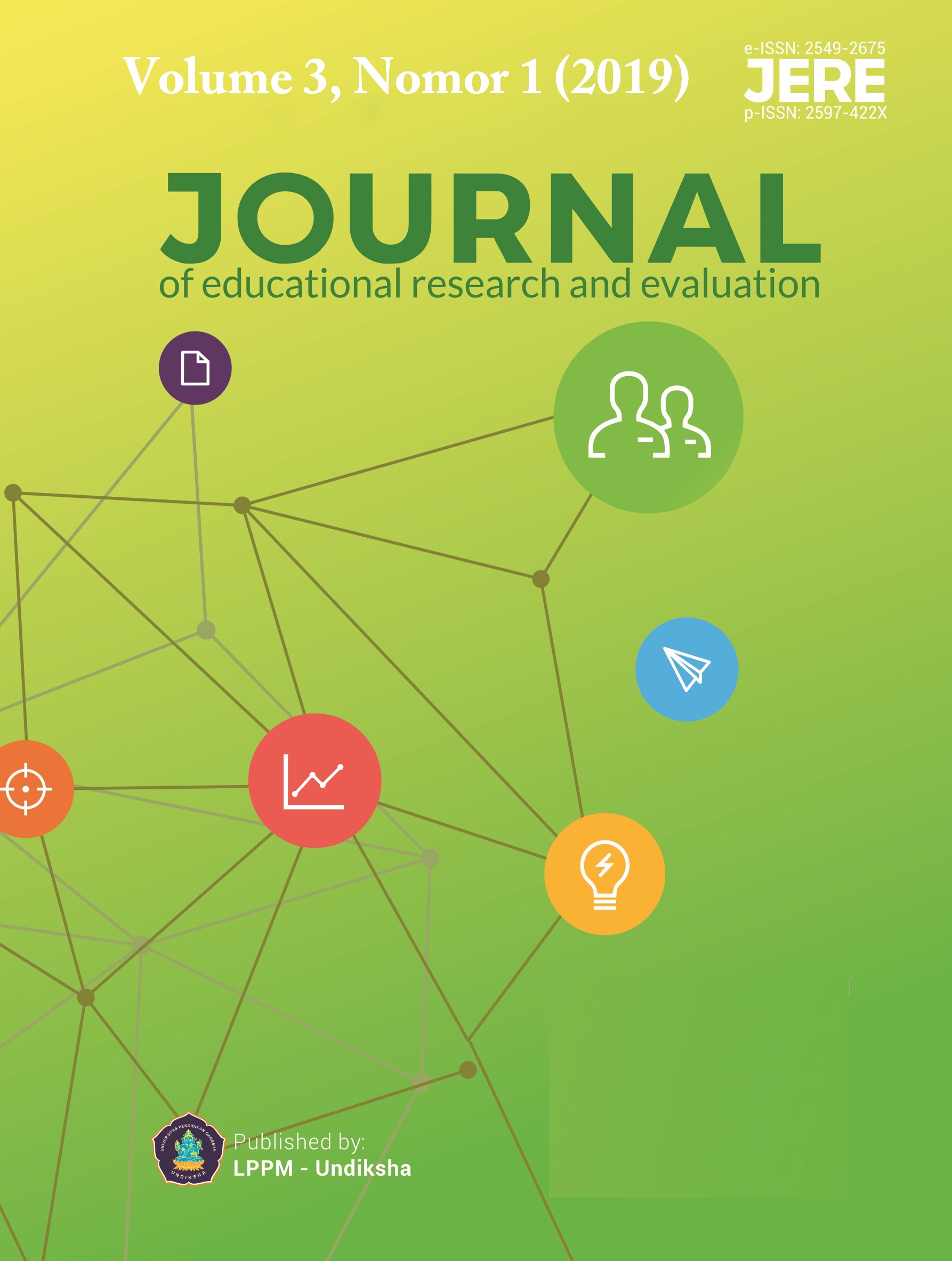Patterns of Care (Parenting) Children with Special Needs
DOI:
https://doi.org/10.23887/jere.v3i1.17770Keywords:
Patterns, parenting, children with special needs, parents, teachersAbstract
The purpose of this study was to investigate the patterns of care of children with special needs in Sjakitarius Foundation Singaraja. The research employed a case study design, including 30 children with special needs, their parents, and teachers. The data were obtained through observation, interview, and document recording. Then the data were processed by using a snow ball technique. The study reveals three themes. Firstly, children with special needs had a tendency to have social interaction deficits (narrow, very limited) with a 74% presentation. They also experienced as many as 85% verbal and nonverbal communication disorders with repeat stereotype, and restricted (95%) stereotype or interest, as well as behavior (100%), which occurs before the age of three. Secondly, the appropriate parenting pattern applied by parents to children with special needs is begun with (1) becoming a parent who deserves to imitate children, (2) not educating children at a cost that cannot be banned by their parents, (3) discipline still must be prioritized in guiding children, (4) putting forward and cultivating early on religion and good moral in children, (5) communication is done openly and fun with certain limitations, (6) avoiding negative actions toward children. Lastly, the appropriate parenting patterns applied by teachers to children with special needs are initiated by (1) becoming a creative and innovative teacher, (2) having unlimited patience, (3) being a positive model, (4) communicating openly like a parent, (5) avoiding negative behaviours.
References
Alimul, H. 2007. Research Methods and Data Analysis. Jakarta: Salemba Medika
Daryati, R. 2009. Establish a good self image through Pattern of Child Care in Raising.
Dewi, I. 2008.Mengenal Parenting Shape Pattern Parent
Godam. 2008. Type/ Type Kind of Pol Aasuh Parents In Children And How To Educate / Raise Good Children. From Http: www.Organisasi.org community and library online.Diakses taanggal March 22, 2016.
Kartono, Kartini. 1992. The Role of Family Guiding Kids, Jakarta
Miles, B. M. & Huberman, A. M. 1992. Qualitative Data Analysis. University of Indonesia Press. Jakarta.
Patmonodewo, S. 2003. Pre-School Child Education. Jakarta: PT Rineka
Syamsu, J. 2009.Psikologi Child and Adolescent Development.
Yin, Rober K. 1996. Case Study: Design and Method. Rajawali Pers. Jakarta
Downloads
Published
How to Cite
Issue
Section
License
Authors who publish with the Journal of Evaluation and Research in Education (JERE) agree to the following terms:
- Authors retain copyright and grant the journal the right of first publication with the work simultaneously licensed under a Creative Commons Attribution License (CC BY-SA 4.0) that allows others to share the work with an acknowledgment of the work's authorship and initial publication in this journal.
- Authors are able to enter into separate, additional contractual arrangements for the non-exclusive distribution of the journal's published version of the work (e.g., post it to an institutional repository or publish it in a book), with an acknowledgment of its initial publication in this journal.
- Authors are permitted and encouraged to post their work online (e.g., in institutional repositories or on their website) prior to and during the submission process, as it can lead to productive exchanges, as well as earlier and greater citation of published work. (See The Effect of Open Access)











